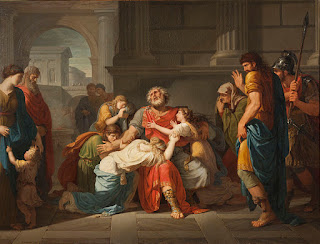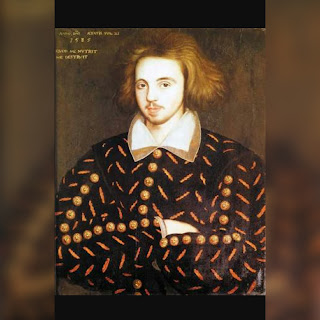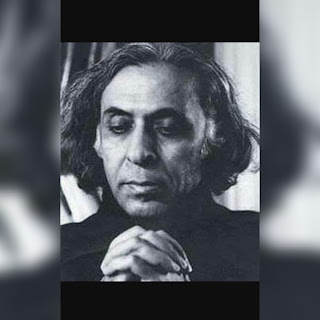Robinson Crusoe
The Life and Strange Surprizing Adventures of Robinson Crusoe,
Of York, Mariner: Who lived Eight and Twenty Years, all alone in an
un-inhabited Island on the Coast of America, near the Mouth of the Great
River of Oroonoque; Having been cast on Shore by Shipwreck, wherein all
the Men perished but himself. With An Account how he was at last as
strangely deliver'd by Pyrates, commonly known as Robinson Crusoe, is a novel by Daniel Defoe,
first published on 25 April 1719. The first edition credited the work's
protagonist Robinson Crusoe as its author, leading many readers to
believe he was a real person and the book a travelogue of true incidents.
Epistolary, confessional, and didactic in form, the book is presented as an autobiography of the title character (whose birth name is Robinson Kreutznaer)—a castaway who spends 28 years on a remote tropical desert island near Trinidad, encountering cannibals, captives, and mutineers, before ultimately being rescued. The story has been thought to be based on the life of Alexander Selkirk, a Scottish castaway who lived for four years on a Pacific island called "Más a Tierra", now part of Chile, which was renamed Robinson Crusoe Island in 1966.
Despite its simple narrative style, Robinson Crusoe was well received in the literary world and is often credited as marking the beginning of realistic fiction as a literary genre. It is generally seen as a contender for the first English novel. Before the end of 1719, the book had already run through four editions, and it has gone on to become one of the most widely published books in history, spawning so many imitations, not only in literature but also in film, television and radio, that its name is used to define a genre, the Robinsonade.
Crusoe (the family name corrupted from the German name "Kreutznaer") set sail from Kingston upon Hull on a sea voyage in August 1651, against the wishes of his parents, who wanted him to pursue a career in law. After a tumultuous journey where his ship is wrecked in a storm, his lust for the sea remains so strong that he sets out to sea again. This journey, too, ends in disaster, as the ship is taken over by Salé pirates and Crusoe is enslaved by a Moor. Two years later, he escapes in a boat with a boy named Xury; a captain of a Portuguese ship off the west coast of Africa rescues him. The ship is en route to Brazil. Crusoe sells Xury to the captain. With the captain's help, Crusoe procures a plantation.
Years later, Crusoe joins an expedition to bring slaves from Africa, but he is shipwrecked in a storm about forty miles out to sea on an island (which he calls the Island of Despair) near the mouth of the Orinoco river on 30 September 1659.He observes the latitude as 9 degrees and 22 minutes north. He sees penguins and seals on his island. As for his arrival there, only he and three animals, the captain's dog and two cats, survive the shipwreck. Overcoming his despair, he fetches arms, tools and other supplies from the ship before it breaks apart and sinks. He builds a fenced-in habitat near a cave which he excavates. By making marks in a wooden cross, he creates a calendar. By using tools salvaged from the ship, and some which he makes himself, he hunts, grows barley and rice, dries grapes to make raisins, learns to make pottery and raises goats. He also adopts a small parrot. He reads the Bible and becomes religious, thanking God for his fate in which nothing is missing but human society.
More years pass and Crusoe discovers native cannibals, who occasionally visit the island to kill and eat prisoners. At first he plans to kill them for committing an abomination but later realizes he has no right to do so, as the cannibals do not knowingly commit a crime. He dreams of obtaining one or two servants by freeing some prisoners; when a prisoner escapes, Crusoe helps him, naming his new companion "Friday" after the day of the week he appeared. Crusoe then teaches him English and converts him to Christianity.
After more natives arrive to partake in a cannibal feast, Crusoe and Friday kill most of the natives and save two prisoners. One is Friday's father and the other is a Spaniard, who informs Crusoe about other Spaniards shipwrecked on the mainland. A plan is devised wherein the Spaniard would return to the mainland with Friday's father and bring back the others, build a ship, and sail to a Spanish port.
Before the Spaniards return, an English ship appears; mutineers have commandeered the vessel and intend to maroon their captain on the island. Crusoe and the ship's captain strike a deal in which Crusoe helps the captain and the loyal sailors retake the ship and leave the worst mutineers on the island. Before embarking for England, Crusoe shows the mutineers how he survived on the island and states that there will be more men coming. Crusoe leaves the island 19 December 1686 and arrives in England on 11 June 1687. He learns that his family believed him dead; as a result, he was left nothing in his father's will. Crusoe departs for Lisbon to reclaim the profits of his estate in Brazil, which has granted him much wealth. In conclusion, he transports his wealth overland to England from Portugal to avoid travelling by sea. Friday accompanies him and, en route, they endure one last adventure together as they fight off famished wolves while crossing the Pyrenees.
Epistolary, confessional, and didactic in form, the book is presented as an autobiography of the title character (whose birth name is Robinson Kreutznaer)—a castaway who spends 28 years on a remote tropical desert island near Trinidad, encountering cannibals, captives, and mutineers, before ultimately being rescued. The story has been thought to be based on the life of Alexander Selkirk, a Scottish castaway who lived for four years on a Pacific island called "Más a Tierra", now part of Chile, which was renamed Robinson Crusoe Island in 1966.
Despite its simple narrative style, Robinson Crusoe was well received in the literary world and is often credited as marking the beginning of realistic fiction as a literary genre. It is generally seen as a contender for the first English novel. Before the end of 1719, the book had already run through four editions, and it has gone on to become one of the most widely published books in history, spawning so many imitations, not only in literature but also in film, television and radio, that its name is used to define a genre, the Robinsonade.
Crusoe (the family name corrupted from the German name "Kreutznaer") set sail from Kingston upon Hull on a sea voyage in August 1651, against the wishes of his parents, who wanted him to pursue a career in law. After a tumultuous journey where his ship is wrecked in a storm, his lust for the sea remains so strong that he sets out to sea again. This journey, too, ends in disaster, as the ship is taken over by Salé pirates and Crusoe is enslaved by a Moor. Two years later, he escapes in a boat with a boy named Xury; a captain of a Portuguese ship off the west coast of Africa rescues him. The ship is en route to Brazil. Crusoe sells Xury to the captain. With the captain's help, Crusoe procures a plantation.
Years later, Crusoe joins an expedition to bring slaves from Africa, but he is shipwrecked in a storm about forty miles out to sea on an island (which he calls the Island of Despair) near the mouth of the Orinoco river on 30 September 1659.He observes the latitude as 9 degrees and 22 minutes north. He sees penguins and seals on his island. As for his arrival there, only he and three animals, the captain's dog and two cats, survive the shipwreck. Overcoming his despair, he fetches arms, tools and other supplies from the ship before it breaks apart and sinks. He builds a fenced-in habitat near a cave which he excavates. By making marks in a wooden cross, he creates a calendar. By using tools salvaged from the ship, and some which he makes himself, he hunts, grows barley and rice, dries grapes to make raisins, learns to make pottery and raises goats. He also adopts a small parrot. He reads the Bible and becomes religious, thanking God for his fate in which nothing is missing but human society.
More years pass and Crusoe discovers native cannibals, who occasionally visit the island to kill and eat prisoners. At first he plans to kill them for committing an abomination but later realizes he has no right to do so, as the cannibals do not knowingly commit a crime. He dreams of obtaining one or two servants by freeing some prisoners; when a prisoner escapes, Crusoe helps him, naming his new companion "Friday" after the day of the week he appeared. Crusoe then teaches him English and converts him to Christianity.
After more natives arrive to partake in a cannibal feast, Crusoe and Friday kill most of the natives and save two prisoners. One is Friday's father and the other is a Spaniard, who informs Crusoe about other Spaniards shipwrecked on the mainland. A plan is devised wherein the Spaniard would return to the mainland with Friday's father and bring back the others, build a ship, and sail to a Spanish port.
Before the Spaniards return, an English ship appears; mutineers have commandeered the vessel and intend to maroon their captain on the island. Crusoe and the ship's captain strike a deal in which Crusoe helps the captain and the loyal sailors retake the ship and leave the worst mutineers on the island. Before embarking for England, Crusoe shows the mutineers how he survived on the island and states that there will be more men coming. Crusoe leaves the island 19 December 1686 and arrives in England on 11 June 1687. He learns that his family believed him dead; as a result, he was left nothing in his father's will. Crusoe departs for Lisbon to reclaim the profits of his estate in Brazil, which has granted him much wealth. In conclusion, he transports his wealth overland to England from Portugal to avoid travelling by sea. Friday accompanies him and, en route, they endure one last adventure together as they fight off famished wolves while crossing the Pyrenees.




Comments
Post a Comment